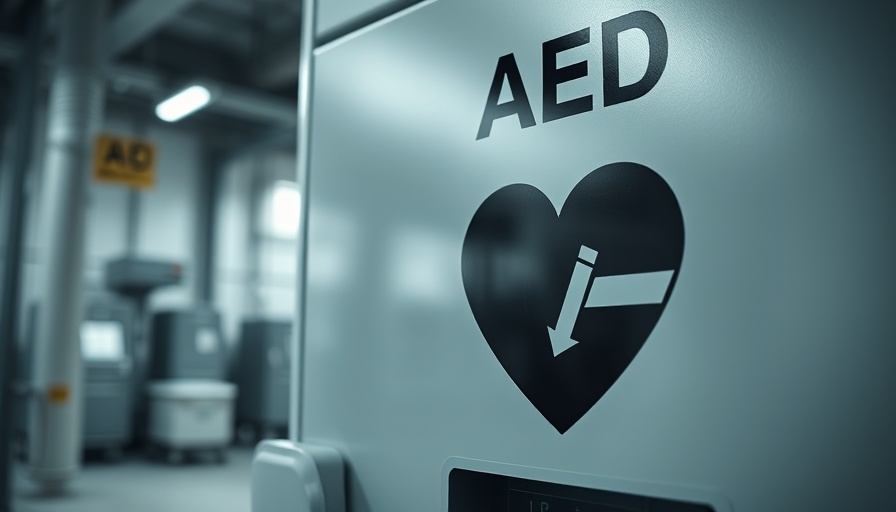
Understanding the Importance of AED Recycling
Automated External Defibrillators (AEDs) are critical life-saving devices designed to deliver a shock to individuals experiencing sudden cardiac arrest. However, when these devices have reached the end of their operational life or are no longer needed, responsible recycling is essential to protect the environment from electronic waste. With millions of AEDs in circulation, proper disposal and recycling practices can significantly reduce the ecological impact of these devices.
Where to Start: Mail-In Recycling Programs
One of the simplest ways to recycle an AED is through a mail-in medical equipment recycling program. Companies like Veolia and TerraCycle specialize in accepting these handheld medical devices and ensuring they are processed for effective parts recovery and responsible electronic waste management. This not only keeps AEDs out of landfills but also helps conserve valuable materials that can be reused in the manufacturing of new devices.
AED Manufacturer Recycling Programs: A Responsible Choice
Many AED manufacturers have devoted recycling programs in place to encourage the responsible disposal of their products. Here are some notable programs that facilitate this process:
- AED One-Stop Shop: Offers free recycling for AED devices, batteries, and electrode pads. Interested parties can contact them directly for participation details.
- AED Market: Provides free recycling for used AED batteries and devices, although customers cover shipping costs.
- Cardiac Life: Assists in recycling AED units, electrodes, and batteries. They also help with re-celling AED batteries.
- Think Safe: Recycles AED units and batteries, promoting sustainability but does not accept pads.
- AED Superstore: Focuses on promoting environmentally safe battery disposal, with specific programs for expired batteries.
Most manufacturers recommend contacting them directly before recycling to obtain specific instructions for returning devices, pads, or batteries.
Tips for Recycling AED Pads
AED electrode pads present unique challenges for recycling due to the adhesive gels and electronic components that comprise them. Unfortunately, most recycling streams aren’t equipped to handle these materials. If not accepted by your device manufacturer, the best practice is often to dispose of them in household trash unless otherwise specified. However, it is also essential to ensure that they are disposed of safely and environmentally responsibly.
The Role of Retailers: Alternative Recycling Options
For those unsure about how to recycle their AEDs, major retailers like Best Buy offer electronics recycling programs that may accept AEDs and their components. Though acceptance policies may vary from location to location, it’s a valid option worth exploring. It’s advisable to contact your local store to confirm whether they will accept AED devices, batteries, or pads.
Environmental Responsibility and Community Health
Adhering to proper AED recycling methods protects the environment and ensures the effectiveness of these vital emergency devices. Expired AED pads, if not managed correctly, can pose a risk in emergency situations, potentially hindering lifesaving efforts. Thus, timely and responsible disposal, while maintaining fresh supplies, is a crucial aspect of public health and safety.
Conclusion: Make Informative Choices
As individuals, organizations, and communities, understanding and acting on the disposal and recycling options for AEDs is vital. Taking steps to recycle AEDs not only prevents harmful electronic waste from cluttering our landfills but simultaneously fosters public safety by maintaining these essential devices in good working order. For more information on AED recycling and to find suitable programs, it is best to consult with local resources or the device manufacturer, reinforcing responsible practices within our communities.
Take Action Today: Act Responsibly
As responsible AED users, make informed choices to protect the environment and maintain the efficacy of life-saving devices. Check your local recycling resources, and ensure proper disposal methods for expired AED components. Every action counts in making our community safer and more sustainable.
 Add Row
Add Row  Add
Add 




Write A Comment